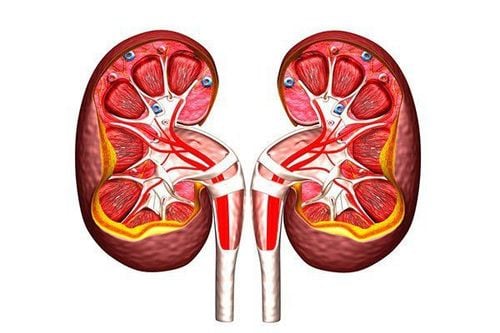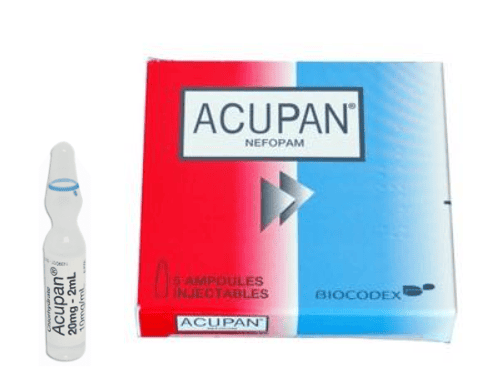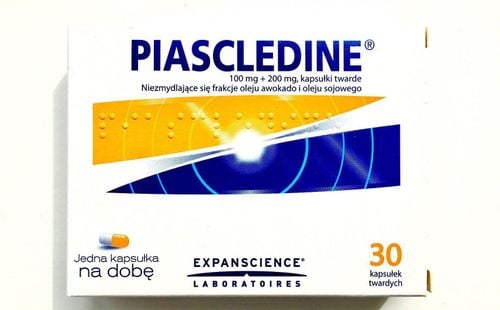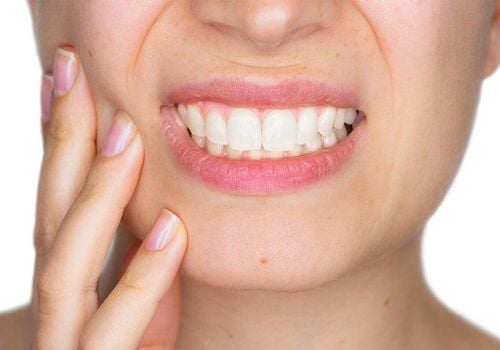1. What is tooth sensitivity and what causes tooth sensitivity?
Tooth sensitivity, or dentin hypersensitivity, is a common dental disease today. There are many causes of tooth sensitivity, specifically as follows:
- Brushing teeth incorrectly, brushing too hard, brushing for too long causing tooth wear, using toothpaste with high abrasiveness.
- Gum recession due to age and other periodontal diseases
- Using highly acidic foods is the cause of tooth enamel erosion and dentin exposure.
- Chipped, or broken teeth, causing dentin exposure.
- Teeth whitening, scaling, wearing braces, and dental fillings are also causes of temporary tooth sensitivity during treatment.
2. What to do with sensitive teeth and what medicine to take for sensitive teeth?
Up to now, according to dentists, there is no specific medicine to treat sensitive teeth orally. Therefore, when you have sensitive teeth, the dentist may prescribe some medicines to help relieve the pain, as follows:
2.1. Fluoride gel
Fluoride gel is a medicated topical treatment applied directly to sensitive areas of the teeth to alleviate temporary tooth sensitivity.You need to use the correct dosage and instructions from the dentist, use products of good quality, with clear labels to avoid health risks. Some commonly used topical medicines to treat sensitive teeth today are: Sensikin gel, GC Tooth mousse, Enamel Pro Varnish, Emoform gel, ...
2.2. Pain relievers
In cases of severe toothache, the dentist may prescribe you some medications to help reduce toothache such as:
- Paracetamol pain reliever: A commonly used pain reliever, paracetamol helps relieve toothache quickly
- Antibiotics and aspirin: have a faster pain-relieving effect than paracetamol, helping to kill bacteria that cause oral diseases.
2.3. Increase vitamin and mineral supplementation
One of the reasons for sensitive teeth, toothache and bleeding gums is due to a lack of vitamins and minerals. Therefore, you should increase your vitamin and mineral supplementation such as:
- Calcium: Plays an important role in protecting tooth enamel, supporting the regeneration and healing of tooth enamel to make your teeth stronger. Therefore, it is necessary to supplement enough calcium in the body to prevent tooth enamel erosion leading to tooth sensitivity.
- Vitamin C: Vitamin C deficiency is one of the causes of gingivitis and bleeding gums. In addition, vitamin C also helps create collagen necessary for tooth regeneration, helping to keep teeth strong. Foods rich in vitamin C include: oranges, tangerines, grapefruits, guavas, etc.
- Vitamin A: Not only good for the eyes, vitamin A is also an important factor in the formation of connective tissue that helps keep gums healthy, preventing gum recession leading to tooth sensitivity. This substance also helps maintain the amount of saliva in the oral cavity in a stable state, helping to prevent bad breath.
- Vitamin D: Calcium and vitamin D play an important role in keeping teeth strong. Vitamin D helps the body increase calcium absorption, helping to protect the gums and prevent gingivitis.
- Vitamin B: There are many types of vitamin B such as vitamin B1, vitamin B6, vitamin B12, .... Vitamin B has the effect of protecting teeth and mouth comprehensively, reducing tongue inflammation, supporting the protection of teeth and gums, helping teeth to be strong and preventing ulcers in the oral cavity from spreading.
Dental restoration treatment, regenerating areas where tooth enamel has been lost.
3. Solutions to prevent tooth sensitivity
To prevent tooth sensitivity, you can apply the following solutions:
- Use a soft-bristled toothbrush instead of a hard-bristled toothbrush. Many people tend to choose a hard-bristled toothbrush because they think that using a hard-bristled toothbrush will clean their teeth better. However, brushing your teeth with a hard-bristled toothbrush is one of the leading causes of increased risk of tooth wear and gum recession.
- Do not brush your teeth immediately after eating. Wait at least 30 minutes after eating or drinking to brush your teeth because the pH level in your mouth will drop immediately after eating, especially if you have eaten or drunk acidic foods such as lemon juice or soda, brushing your teeth at this time will make your teeth more susceptible to erosion. In the meantime, drink water or chew sugar-free gum to freshen your breath.
- Use the correct and appropriate techniques to brush your teeth. If you want to know if you are brushing too hard, check your toothbrush. If the bristles are bent and frayed within a few weeks, you are probably using too much pressure. The solution is to adjust the brushing force each time and brush in a circular motion, cleaning every corner of your teeth.
- Replace your toothbrush at least every 3 months or when the bristles show signs of fraying, wear, or spreading out.
Please dial HOTLINE for more information or register for an appointment HERE. Download MyVinmec app to make appointments faster and to manage your bookings easily.













